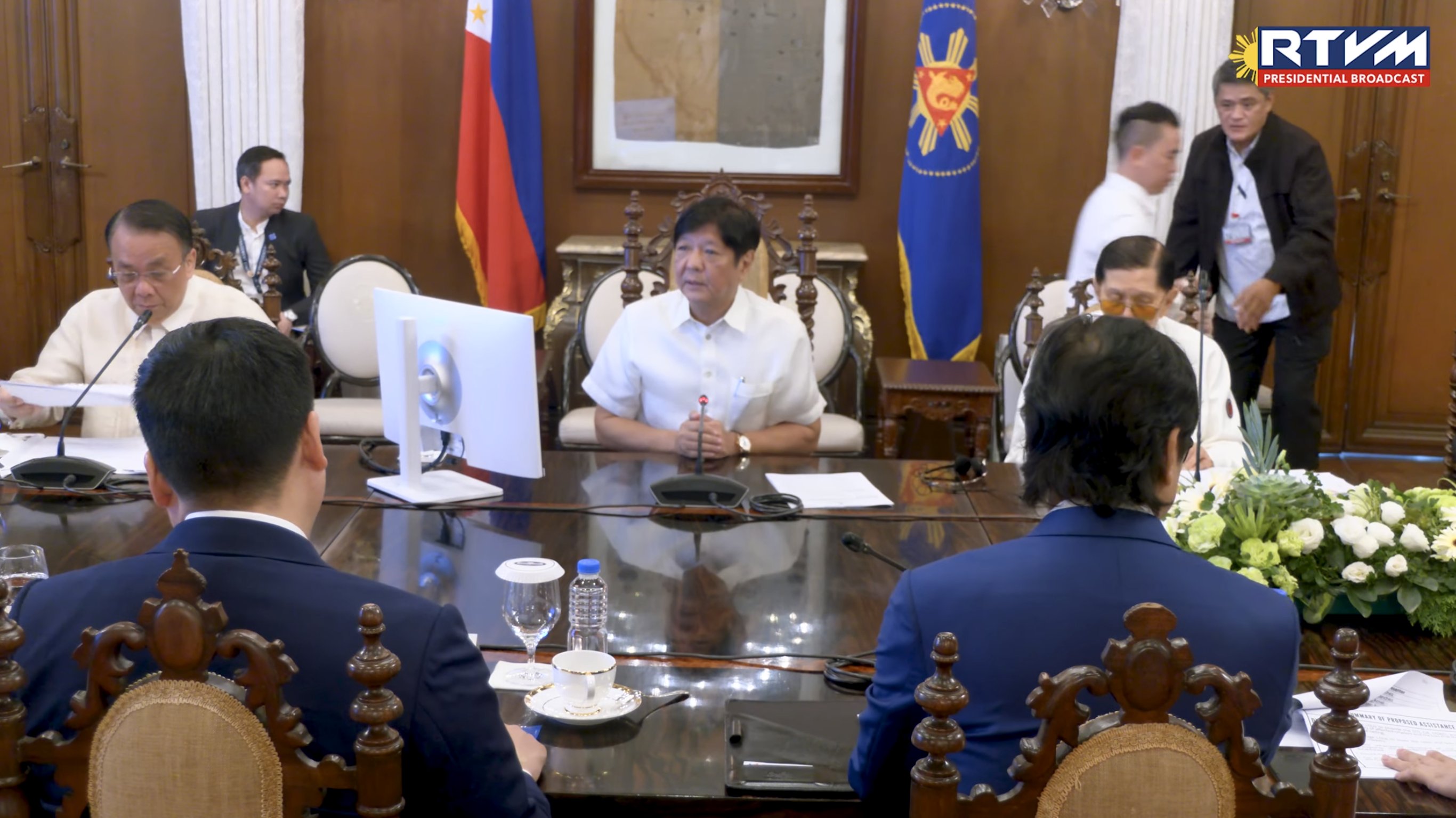Marcos meets agencies on rice price cap implementation
At A Glance
- Retailers request that the EO's implementation be delayed so they could sell the rice stocks they purchased at a high price.
- Retailers request toll and fuel discounts to offset their costs.
- Retailers in wet markets request a moratorium on fees and rentals to offset their loss.
President Ferdinand "Bongbong" Marcos Jr. has convened representatives from different government agencies to discuss the concerns on the upcoming enforcement of retail price ceilings on rice.

Marcos presided over the meeting just hours before he flew to Jakarta, Indonesia, for the 43rd Association of Southeast Asian Nations (ASEAN) Summit on Sept. 4.
According to Malacañang, the meeting focused on mitigation measures for rice retailers affected by Marcos' Executive Order (EO) No. 39, which mandated a price cap on the staple grain.
EO 39 mandated the price ceiling for regular milled rice at P41 per kilogram, while the price cap for well-milled rice is P45 per kilogram.
During the meeting, Trade Assistant Secretary Dominic Tolentino Jr. reported the various concerns raised by the retailers, traders, and farmers cooperatives and the assistance they are seeking from the government.
Retailers requested that the EO's implementation be delayed so they could sell the rice stocks they purchased at a high price and get government assistance to find and access cheaper rice.
They likewise requested toll and fuel discounts to offset their cost.
Meanwhile, retailers in wet markets requested a moratorium on fees and rentals to offset their loss.
Among the proposed measures is financial assistance to retailers in wet markets and sari-sari stores to cover the difference between the cost of the current inventory of rice and the price ceiling.
The Trade official also suggested loan programs, logistics support like providing government transportation for transferring sacks of rice from traders to retailers or wholesalers, market linkages, and support such as linking local rice farmers with supermarket chains and other retailers and finding alternative markets.
Another recommendation was to have Kadiwa-Diskwento Caravan wherein current rice stocks purchased at the price ceiling or above would be transported to the Kadiwa-Diskwento Caravan sites and sold directly to consumers.
Meanwhile, Social Welfare Secretary Rex Gatchalian proposed livelihood assistance or the Sustainable Livelihood Program (SLP) for small-scale rice retailers and the proposed social safety net for affected rice retailers.
The mandated price ceilings, which will start on Sept. 5, will remain in effect until Marcos lifts it.
In his EO, Marcos said it was important for the government to address the situation and ensure Filipinos could access the staple grain.
"The current surge in retail prices of rice in the country has resulted in a considerable economic strain on Filipinos, particularly those who are underprivileged and marginalized," he said.
"In light of the current situation, it is crucial and urgent for the State to guarantee that basic necessities are not only sufficient but also reasonably priced and conveniently accessible to every Filipino," he added.
Marcos directed the DA and the DTI to ensure the strict implementation of the mandated price ceilings, monitor and investigate abnormal price movements of rice in the market, and provide assistance to affected retailers with the help of the Department of Interior and Local Government (DILG).
The President likewise urged the public to report those who would sell overpriced rice.